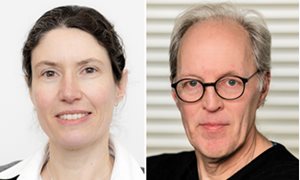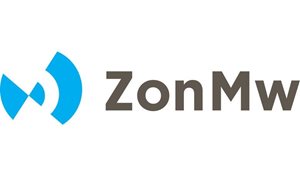 Hi! My name is Floris van Dalen, I am from a small town in the south of South Holland and just started my second year as a PhD candidate in the group of Martijn Verdoes at Tumor Immunology under the theme Cancer development and immune defense.
Hi! My name is Floris van Dalen, I am from a small town in the south of South Holland and just started my second year as a PhD candidate in the group of Martijn Verdoes at Tumor Immunology under the theme Cancer development and immune defense.
When you were a kid what did you want to be when you grew up? Can you tell us something about your child years.
When I was young, I was always running around and did real boy stuff, like building tents and making catapults. I always loved nature but I didn’t really have an idea of doing a PhD in chemical immunology just jet. The first time I thought about career choices was during an orientation course at school where I interviewed my chemistry teacher. I was fascinated by the experiments we were doing in class like making soap and galvanising test tubes.
What was your previous academic training, where did you study and why that study?
I have studied chemistry at the University of Leiden and during my masters I specialized in the area of chemical biology. At the time I just really liked organic chemistry and wanted to understand how molecular forces shape the macroscopic world we experience every day. Later, I realised that these same dynamics also describe the driving forces of biological processes and I became especially interested in chemical immunology. I think delineating the way our immune system works at the molecular level will help us understand multi-faceted illnesses as cancers, dementia and cardiovascular diseases.
The RIMLS motto is: ‘Today’s molecules for tomorrow’s medicine’. What does this mean for you?
For me it shows the strong connection of the UMC in medical and translational research. Sometimes you lose yourself in the practical aspects of your research (which is good) and the motto serves as a great reminder that in the end we would like to help patients get better.
Who is your great example as scientists? And please give a motivation why.
Gijs. Gijsbert van der Marel was my professor in Organic Chemistry and he is the most passionate and colourful researcher that I have met. His classes were always captivating and he really motivated me as a student. My time in his research group showed me how important teamwork is in science and how an inviting and open atmosphere catalyses discussions and the development of new ideas.
Which research discovery that you have made has made you most proud?
I work on the development of a novel targeted small molecule approach to modify the tumor microenvironment. Last month, we were able to perform a proof‑of‑principle experiment in RAW macrophages to test the targeted delivery of monomethyl auristatin E, a cytostatic drug. Seeing my own product work in early biological experiments was really motivating. We are currently expanding this project to incorporate immunomodulatory drugs that reactivate tumour-associated macrophages to improve immunotherapy.
Given unlimited finance what experiment would you perform?
There are lot of exciting and promising immunotherapies in the treatment of cancer, such as checkpoint inhibition or dendritic cell vaccination. Immunotherapy has shown great promise in curing cancer patients for long periods of time. However, standard practise right now doesn’t directly combat the cause of tumour development. Hence, if given infinite amount of money I would like to look further into the influence of our immune system on the development of malignant tumours and I hope this immunotherapy research would ultimately lead to the development of (more available) curative treatments for cancer.
What does your working area (desk, office) look like and what does it say about you (or your research)?
Organised chaos. I think it symbolises the chaos that is nature and how I attempt to organise it.
Nominate a colleague to be in the spotlight and what would you like to ask him or her?
Felix Fennemann, I would like to ask him how he makes his amazing presentations.
What type of person are you, quick insights:
a) Mac or PC? : Personal Computerb) Theater or cinema? : Concerts
c) Dine out or dine in? : Dine in (I love cooking)
d) Ferrari or Fiat? : Toyota
e) Shopaholic or chocoholic? : Neither really. (I really love good food though.)
f) Culture or Nature : I love both
Related news items

ZonMw Open Competition Grant for Annemiek van Spriel and Piet Gros
15 June 2021 Annemiek van Spriel, theme cancer development and immune defense, together with Piet Gros, Dept. of Chemistry, Utrecht University obtained a ZonMw Open Competition Grant to investigate IL-6 receptor structure and signalling in tumor cells. go to page
HFSP Grant for Johannes Textor
30 March 2020 Johannes Textor, theme Cancer development and immune defense, has been awarded a program grant of 1 million US dollars by The Human Frontier Science Program (HFSP) to investigate how T cells navigate extremely dense environments using experiments, modeling and methods from pedestrian dynamics. go to page
Human pDCs attract cytolytic lymphocytes in anti-cancer vaccination
6 February 2020RIMLS researchers Jasper van Beek and Jolanda de Vries, theme Cancer development and immune defense, discovered that pDCs can efficiently recruit cytolytic immune effector cells, a property that could be exploited in anti-cancer vaccines. They have published these findings in Cell Reports.
go to page
ZonMw funding for teams of Michiel Vermeulen and Jolanda de Vries
4 February 2020The awarded research projects of RIMLS researchers Michiel Vermeulen, Jolanda de Vries, Gerty Schreibelt and Martijn Verdoes and colleagues will initiate new research lines and collaborations between various research groups.
go to page
Niels Stensen Fellowship for Jorieke Weiden
6 January 2020 Jorieke Weiden was recently awarded a grant from the Niels Stensen Fellowship. Since the 1960s, the Niels Stensen Fellowship has been awarded annually to outstanding researchers who recently received their PhD to enable them to gain research experience at a top university or institute abroad. go to page
